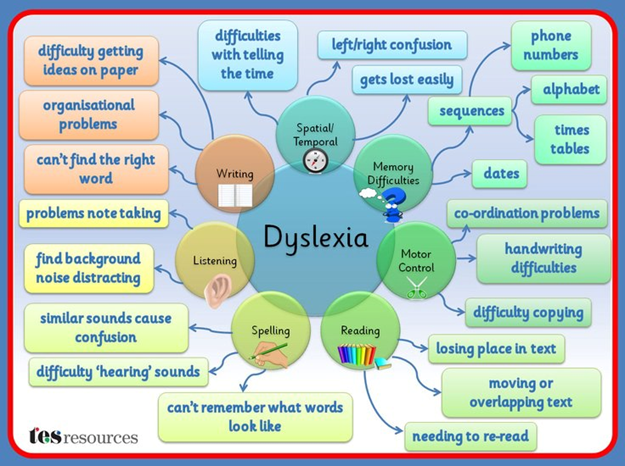The International Dyslexia Association Lyon et al 2003 defines dyslexia as a specific learning disability that is neurological in origin. Standardized achievement tests are another important avenue to further characterize your childs learning.
Your child may be offered to take reading and skill tests.

Who can diagnose dyslexia in a child. A dyslexia diagnosis or identification of dyslexia is part of determining eligibility for special education. In the Learning Disabilities Program your child will be seen by a team that includes a written language specialist who is qualified to determine in collaboration with the neurologist and neuropsychologist whether the child has dyslexia. Dyslexia can be a tough disability to spot especially in a child.
A complete psychological or neuropsychological evaluation is the best way to diagnose dyslexia in children. A diagnosis of dyslexia need not be made in order to offer early intervention in reading instruction. This assessment will tell you if your child is dyslexic or not.
Professionals who possess expertise in several disciplines are best qualified to make a diagnosis of dyslexia. This will enable schools to be self sufficient in assessing children providing evidence based instruction where trained and where required to make reasonable adjustments under the DDA 1992 and Disabilty Standards for. If your child has a learning disability in reading dyslexia writing dysgraphia or math dyscalculia AND she also is not achieving adequately in school then she is eligible for special education services under an IEP.
He or she will ask your child questions too. Intelligence testing is an important test which provides an overall background of learning which can help distinguish Dyslexia from other conditions. And there has been effective instruction you are most likely looking at someone who is dyslexic.
A doctor or a school professional such as a reading specialist will ask you what signs of dyslexia you and your childs teachers have seen. Whether children can be identified early under age 6 and treated for dyslexia depends in part on whether we consider the symptoms of dyslexia to be expected or unexpected in a child. The testing may be done by a single individual or by a team of specialists.
Who is qualified to make the diagnosis of dyslexia. The only way dyslexia can be formally diagnosed is through a Diagnostic Assessment carried out by a certified dyslexia assessor. Andor writing skills fall below expectations based on other cognitive abilities.
Reading accuracy fluency andor comprehension. If the individual has good spoken language comprehension skills poor spoken language comprehension would indicate a diagnosis of reading disorder but phonological processing ie phonologcial awareness phonological memory andor rapid naming. The teacher might be able to spot the first signs of dyslexia when they see that the child is struggling to spell read or write.
Only when a child starts school can the parents find out if they are dyslexic or not. The main part of this will be an educational assessment. One of the recommendations agreed by government is that schools can be trained to identify and assess dyslexia and significant reading difficulties.
If your child is or may be dyslexic then we have information resources and training available to help you to ensure that your child is able to reach their full potential. Dyslexia is diagnosed by a detailed assessment of the childs reading language and cognitive skills. You can also find information in our Empowered Parents pack on how to support your child at home working with your school to secure a diagnosis and support and what support the law entitles a young person with dyslexia.
Another option you may want to pursue is child psychologists. Because neuropsychologists specialize in brain functioning and dyslexics have a unique wiring in their brain neuropsychologists can usually offer a proper diagnosis as well as the best additional information for helping your child or loved one with their dyslexia. You will receive a detailed report outlining areas of strengths and weaknesses and a clearer idea of your childs cognitive profile and how best to support them.
For your child to get a definitive diagnosis of dyslexia a full evaluation is necessary.

